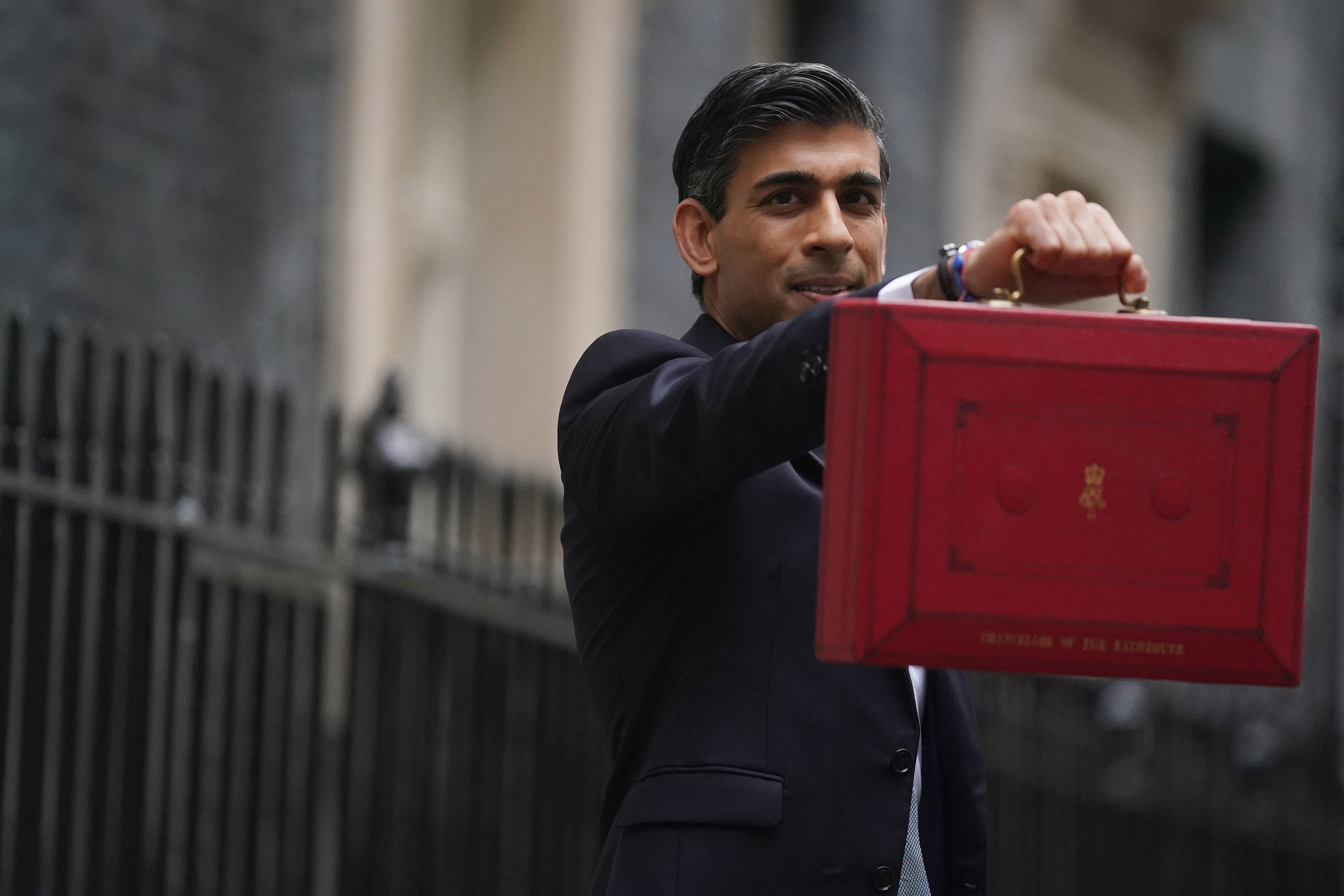Almost £2bn slashed from ‘levelling up’ funding in poor areas, despite Boris Johnson’s pledge
Tory manifesto pledged to ‘match’ development spending lost with Brexit – but pot is just £2.6bn over three years, not £4.5bn

Almost £2bn has been slashed from promised development spending in poorer areas of the UK, despite Boris Johnson’s vow to “level up” the country.
The government had pledged to match lost EU funding – to “tackle inequality and deprivation” – which would have required at least £4.5bn over the next three years.
But Rishi Sunak’s Budget reveals just £2.6bn has been allocated and reallocates the fund to improving “functional numeracy skills”, to boost job prospects.
The move will provoke fury in many ‘Red Wall’ areas of England and in Scotland and Wales – which were big recipients of EU structural funds before Brexit cut off the flow.
The Conservative party manifesto at the 2019 general election promised to “at a minimum match” the lost funds in each nation of the UK.
Rebecca Evans, the Welsh Government’s finance minister, protested at “clear gaps in funding where the UK government should be investing in Wales”.
“Arrangements for replacing EU structural funds remain unclear, but what we do know is it falls well short of the £375m we were receiving – these are funds that support skills, businesses and decarbonisation.”
Alexander Rose, a public funding lawyer and secondee at the European Commission, tweeted that the announcement “breaks the promise” that the EU funds would be replaced.
“Furthermore, the new fund is heavily centralised with no guarantees the funding on offer will go to the areas which need it most,” he warned.
The long-promised UK Shared Prosperity Fund was already mired in controversy, after being delayed until next year – already costing poorer areas around £1.5bn.
The government promised to match the pre-Brexit grants, to build local economies by attracting businesses and jobs, and said they would flow from next April.
But the spending review document, for the three years from 2022 until 2025, states it will be “worth over £2.6bn”, over that period.
It says funding will only “rise to £1.5bn a year by 2024-25” and says the pot must no pay for “a new UK-wide programme to equip hundreds of thousands of adults with functional numeracy skills”.
Mr Sunak did not mention the disguised cut in his Budget speech, in which he argued the government was “levelling up communities, restoring the pride people feel in the places they call home”.
“For too long, far too long, the location of your birth has determined too much of your future,” the chancellor said, announcing a separate £1.7bn for better infrastructure in more than 100 areas.
Economic experts have also warned that ministers are ignoring where “need is greatest” in the allocation of the limited funds available.
It came after The Independent revealed that seats held by 7 Cabinet ministers are likely winners from the prosperity fund, despite previously being judged as not needing the grants.
The constituencies of Mr Sunak, the foreign secretary Liz Truss, and Stephen Barclay, the Chancellor of the Duchy of Lancaster, are on a list of “priority places”.
Join our commenting forum
Join thought-provoking conversations, follow other Independent readers and see their replies
Comments
Bookmark popover
Removed from bookmarks